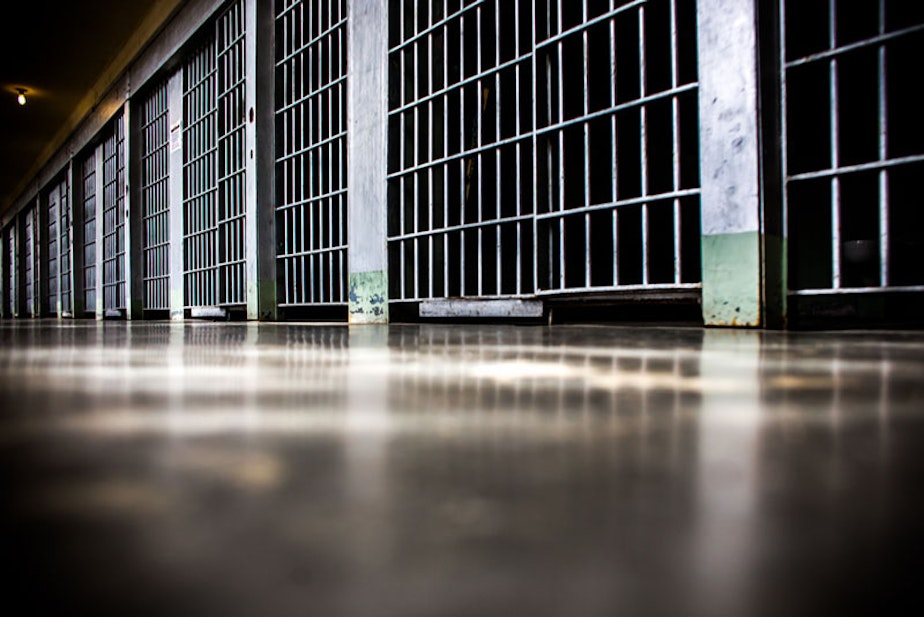Washington state is closing its first prison in 10 years. Are other facilities next?

For the first time in more than a decade, Washington state is closing a prison. The Larch Corrections Center in Yacolt, Clark County will shut its gates for the last time next week.
The state’s Department of Corrections says the population of the 240-bed minimum security prison is now down to about 60 people, all of whom will be relocated by Monday, Oct. 2.
One-hundred and fifteen Larch employees are being offered jobs at other facilities, according to state officials.
The reason for the closure is a matter of falling demand — there are simply fewer people behind bars in the state.
The department says these trends will likely accelerate in the coming years, potentially leading to more prison closures.
One of the factors behind the drop in prison population was the aftermath of the Washington Supreme Court's Blake decision, which struck down the state's felony drug possession law. In response to that decision, state lawmakers passed a "fix" that makes drug possession a misdemeanor and criminalizes the use of drugs in public.
Corrections "pointed to the state's new drug possession law, which means the state would need less minimum-security prison beds," said Laurel Demkovich, a reporter at the Washington State Standard who has been following the prison closure.
"Then they said that the overall projections for the state just show that the state needs less minimum-security beds, which is mostly what Larch offers," she added.
That feels like an unmitigated win for society, and for taxpayers. But when these big facilities shut down, the disruption to the lives of workers, local economies, and incarcerated people and their families is significant.
Teamsters 117, the union representing corrections staff filed a lawsuit to halt the closure of Larch. The union asserts "that the department made the decision to close Larch, which would affect the 115 people who work there and their jobs, essentially laying them off, without any sort of input from the union," Demkovich said.
Larch Corrections Center had a reputation for successful educational and skills-building programs for inmates.
"Employees that I've spoke to, they're very involved in the community down in the Larch area, and they feel that Larch is one of the best rehabilitation centers for the incarcerated. So, they're pretty upset that the facility is closing," said Kehaulani Walker, the founder of an advocacy organization called "Families of the Incarcerated."
Corrections officials said the inmates being moved from Larch would not be shut off from community engagement and rehabilitation services at other state prisons.
“There will be even more programming options available at other facilities," department spokesperson Chris Wright said in an email. "Part of the reason for this closure is that incarcerated [people] will have access to programs at larger facilities that aren’t available at a minimum-security [prison – like Larch].”
But Walker said the closure of Larch will still upend lives for people who live there, as well as their loved ones.
"Individuals have already been there for quite a bit quite a long time, they've established jobs, they've established their families coming and visiting them, it's become a routine in their lives," Walker said.
The closure of Larch may be just the beginning of a process called "decarceration," or the decreasing use of corrections.
"We've had serious decarceration in this country now for the last 15 years, not in every state, but in most states and the federal government," said Mary Stohr, a former corrections employee at Larch and current professor of criminal justice and criminology at Washington State University.
Stohr said there are a myriad of reasons behind the closures — prisons are expensive, violent crime is down per capita, legalization and decriminalization of drugs have led to fewer arrests for nonviolent offenses, and a decrease in the percentage of young people may also be behind the dip.
In the short term, Stohr acknowledges there will be pain points as prisons close.
"There's some unforeseen, unthought of effects in terms of economies and relationships, that will be harmed by closing this prison," Stohr said. "But it's also true that in our state, as in many states, we've been incarcerating far too many nonviolent people for many years, for minor drug offenses for all kinds of crimes where they could have been in the community."
Listen to Soundside’s full conversation with Mary Stohr by clicking the play icon at the top of this story.


